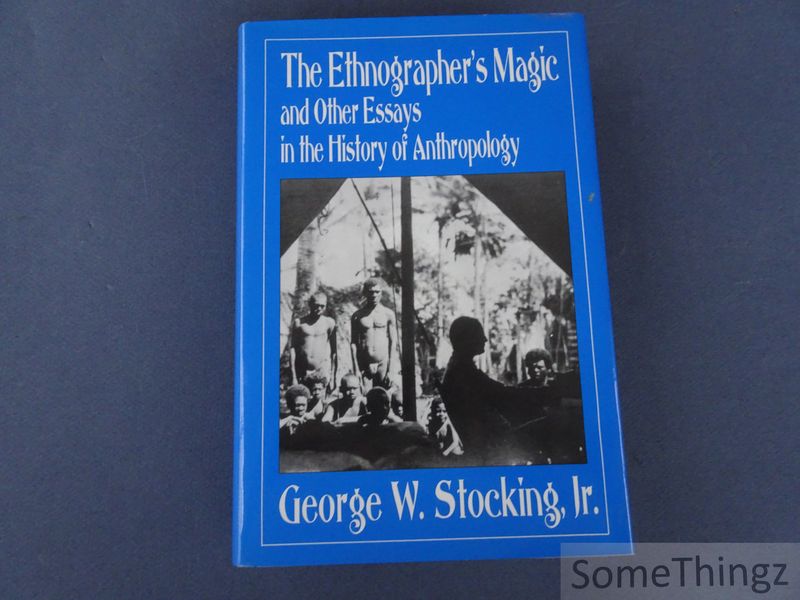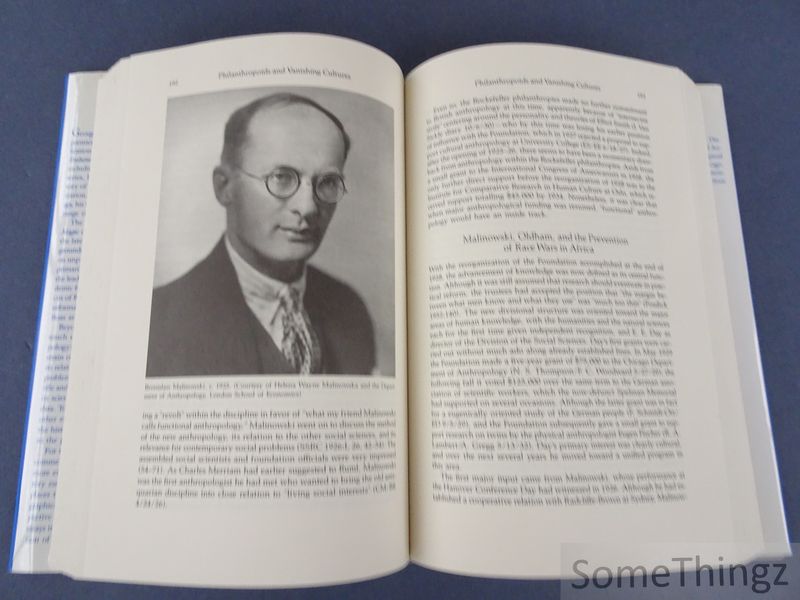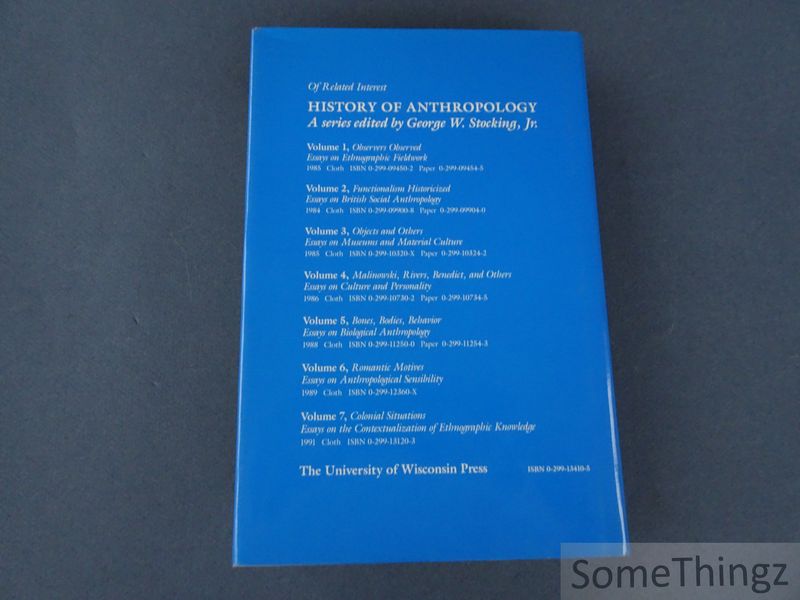BOOKS
Stocking, George W.Jr.
The Ethnographer's Magic and Other Essays in the History of Anthropology.
Wisconsin, University of Wisconsin Press, 1992.
€ 25.00
Bound, cloth with original dustjacket, 440pp., 16x23.5cm., in very good condition. ISBN: 0299134105.
George Stocking has been widely recognized as the premier historian of anthropology ever since the publication of his first volume of essays, Race, Culture, and Evolution, in 1968. As editor of several publications, including the highly acclaimed History of Anthropology series, he has led the movement to establish the history of anthropology as a recognized research specialization. In addition to the study Victorian Anthropology, his work includes numerous essays covering a wide range of anthropological topics.
The eight essays collected in The Ethnographer's Magic consider the emergence of anthropology since the late nineteenth century as an academic discipline grounded in systematic fieldwork. Drawing extensively on unpublished manuscript materials, the essays focus primarily on Franz Boas and Bronislaw Malinowski, the leading figures in the American and the British academic fieldwork traditions. According to George Marcus of Rice University, the essays "represent the most informative and insightful writings on Malinowski and Boas and their legacies that are yet available." Beyond their biographical material, the essays here touch upon major themes in the history of anthropology: its powerfully mythic aspect and persistent strain of romantic primitivism; the contradictions of its relationship to the larger sociopolitical sphere; its problematic integration of a variety of natural scientific and humanistic inquiries; and the tension between its scientific aspirations and its subjectively acquired data. To provide an overview against which to read the other essays, Stocking has also included a sketch of the history of anthropology from the ancient Greeks to the present. For this collection, Stocking has written prefatory commentaries for each of the essays, as well as two more extended contextualizing pieces. An introductory essay ("Retrospective Prescriptive Reflections") places the volume in autobiographical and historiographical context; the Afterword ("Postscriptive Prospective Reflections") reconsiders major themes of the essays in relation to the recent past and present situation of academic anthropology.





